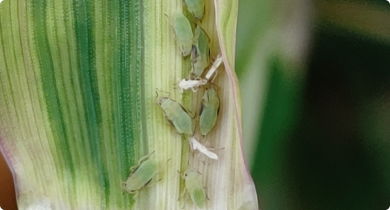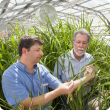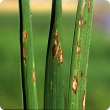Crops
The Department of Primary Industries and Regional Development continues to support the growth and international competitiveness of all crop industries in Western Australia.
With a 2400 kilometre span from its tropical north to its temperate south, WA supports a broad range of cropping industries from rain-fed winter cereals through to irrigated horticultural crops.
In the 2012/13 year the WA cropping industries exported a total of $3.9 billion which comprised: $3.1 billion of cereals, $859 million of pulses, pastures and oilseeds, $142 million of horticultural crops. The major contributors to these exports were wheat ($2.7 billion), canola ($756 million), barley ($377 million), lupins ($42 million), carrots at $48 million, oats ($12 million), and strawberries at $5.5 million.
Articles
Pages
- « first
- ‹ previous
- 1
- 2
- 3
- 4
Filter by search
Filter by topic
- (-) Remove Irrigated crops filter Irrigated crops
- Horticulture (17) Apply Horticulture filter
- Climate, land & water (12) Apply Climate, land & water filter
- Grains (10) Apply Grains filter
- Hemp (7) Apply Hemp filter
- Resource assessment (7) Apply Resource assessment filter
- Water (6) Apply Water filter
- Production & postharvest (6) Apply Production & postharvest filter
- Water management (6) Apply Water management filter
- Pests, weeds & diseases (6) Apply Pests, weeds & diseases filter
- Pastures (6) Apply Pastures filter
- Biosecurity & quarantine (5) Apply Biosecurity & quarantine filter
- Biosecurity (5) Apply Biosecurity filter
- Measuring and assessing soils (4) Apply Measuring and assessing soils filter
- Soils (4) Apply Soils filter
- Diseases (4) Apply Diseases filter
- Irrigation (4) Apply Irrigation filter
- Assessment for agricultural expansion (4) Apply Assessment for agricultural expansion filter
- Pasture management (3) Apply Pasture management filter
- New horticulture crops (3) Apply New horticulture crops filter
- Plant biosecurity (3) Apply Plant biosecurity filter
- Rice (3) Apply Rice filter
- Genetic modification (3) Apply Genetic modification filter
- Livestock & animals (3) Apply Livestock & animals filter
- Grains research & development (3) Apply Grains research & development filter
- Managing soils (2) Apply Managing soils filter
- Postharvest (2) Apply Postharvest filter
- Weeds (2) Apply Weeds filter
- Livestock management (2) Apply Livestock management filter
- Livestock species (2) Apply Livestock species filter
- Climate & weather (2) Apply Climate & weather filter
- Fungi (2) Apply Fungi filter
- Climate change (2) Apply Climate change filter
- Canola (2) Apply Canola filter
- Fruit (2) Apply Fruit filter
- Grapes & wine (1) Apply Grapes & wine filter
- Field peas (1) Apply Field peas filter
- Identifying WA soils (1) Apply Identifying WA soils filter
- Land use (1) Apply Land use filter
- Crop weeds (1) Apply Crop weeds filter
- Livestock research & development (1) Apply Livestock research & development filter
- Intrastate movement (1) Apply Intrastate movement filter
- Agribusiness Food & Trade (1) Apply Agribusiness Food & Trade filter
- Beef cattle (1) Apply Beef cattle filter
- Agricultural exports (1) Apply Agricultural exports filter
- Breeding & varieties (1) Apply Breeding & varieties filter
- Control methods (1) Apply Control methods filter
- Cotton (1) Apply Cotton filter
- Crop diseases (1) Apply Crop diseases filter










